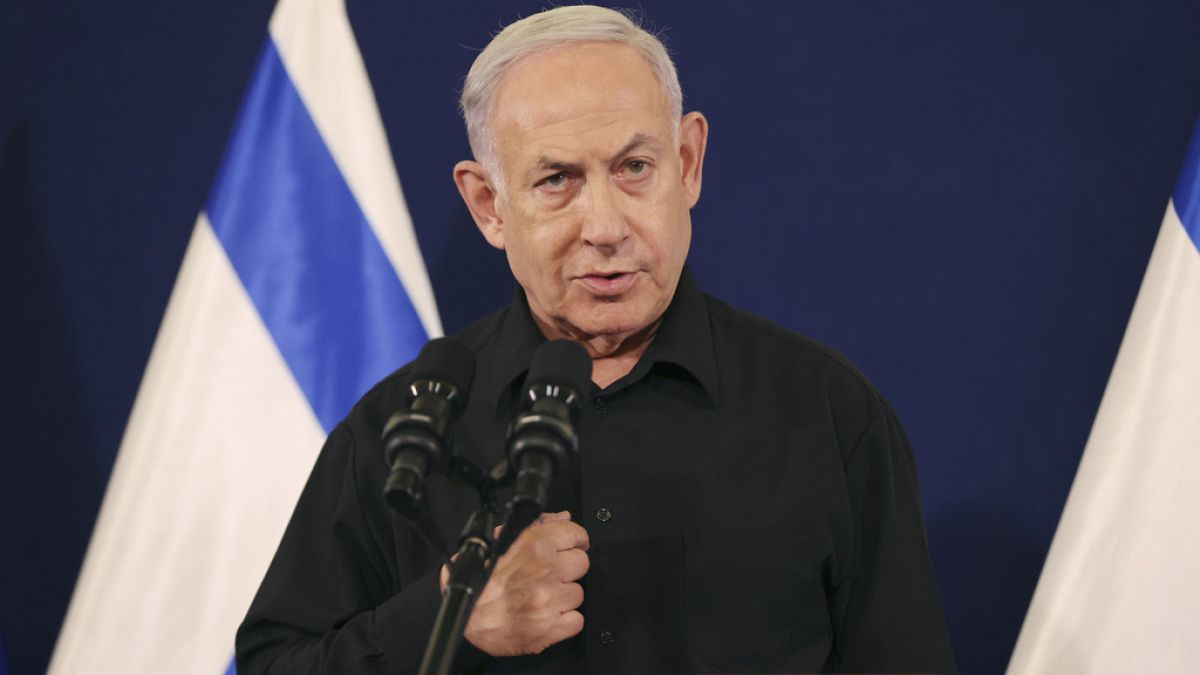Israeli Prime Minister Benjamin Netanyahu has officially dissolved the six-member war cabinet following the departure of centrist former general Benny Gantz from the government. The war cabinet, which was established on 11 October to manage military campaigns against Hamas and Hezbollah, included key figures like Gantz’s partner, Gadi Eisenkot, and leader of the religious party Shas Aryeh Deri as observers. The dissolution of the war cabinet marks a significant shift in the Israeli government’s approach to the ongoing conflict.
Netanyahu now plans to consult a smaller group of ministers, including Defence Minister Yoav Gallant and Strategic Affairs Minister Ron Dermer, on critical decisions related to the Gaza war. This decision comes after pressure from his nationalist-religious coalition partners, Finance Minister Bezalel Smotrich and National Security Minister Itamar Ben-Gvir, who sought inclusion in the war cabinet but risked tensions with international allies such as the US. Despite calls for inclusion, Netanyahu is expected to continue making strategic war decisions in smaller, ad hoc meetings while seeking broader approval from the full security cabinet.
The disbandment of the war cabinet follows Benny Gantz’s exit from the coalition last week, followed by Eisenkot’s resignation. National Security Minister Itamar Ben-Gvir has been vocal about wanting to join the war cabinet and has lobbied intensively for his inclusion. However, Netanyahu seems to be opting for a smaller group of ministers for critical decisions related to the Gaza war, potentially avoiding tensions with international allies while maintaining strategic decision-making capabilities.
This shift in the Israeli government’s approach to the ongoing conflict comes at a crucial time, as tensions in the region continue to escalate. Netanyahu’s decision to dissolve the war cabinet and consult a smaller group of ministers for critical decisions reflects a strategic move to navigate the complexities of the conflict while balancing international relations. Despite internal and external pressures, Netanyahu seems committed to making informed and strategic decisions to address the ongoing challenges in the region.
The dissolution of the war cabinet and Netanyahu’s plan to consult a smaller group of ministers on critical decisions related to the Gaza war mark a significant development in Israeli politics and its approach to the ongoing conflict. As the situation in the region remains volatile, Netanyahu’s decision-making process will play a crucial role in shaping the outcome of the conflict and maintaining stability in the region. By balancing internal dynamics and international relations, Netanyahu aims to navigate the complexities of the conflict while ensuring strategic decision-making capabilities.
In conclusion, Netanyahu’s dissolution of the war cabinet and shift towards consulting a smaller group of ministers for critical decisions related to the Gaza war represent a strategic move to address the ongoing conflict in the region. Despite pressures from internal coalition partners and calls for inclusion in the war cabinet, Netanyahu seems focused on maintaining a balance between internal dynamics and international relations while making informed and strategic decisions. As the conflict continues to unfold, Netanyahu’s decision-making process will be closely watched to see how it impacts the situation in the region.


























